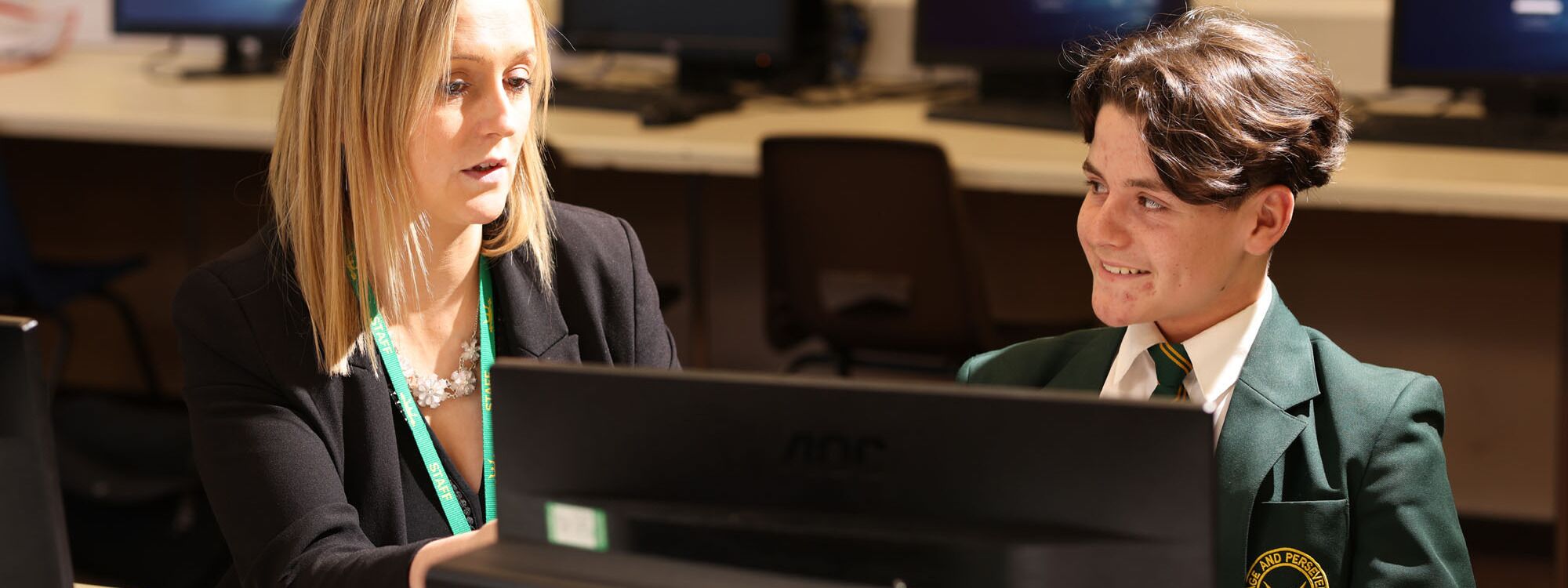- Home
- Learning & Achievement
- Curriculum Subjects
- ICT and Computer Science
Year 7
Students begin at KES with a refresher course in E-Safety. Students are taught about the dos and don’ts of going online along with a crash course on cyber bullying and how to present themselves while online. While learning about this they also develop their software skills and look at a range of different technologies. By the end of Year 7, students should have a good grasp of the key office programmes and be well versed in appearing professional online.
Year 8
Year 8 starts with students looking at some more creative uses of ICT. Students look at web and graphic design and use a range of software to help them produce graphics and logos for websites and print. Students will also look at some aspects of code and will start to get an idea of how a computer works and interacts with software.
Year 9
Students are streamed based on whether they preferred programming or skills at Year 8. Programming students spend the year looking at the theory behind code and how computers work. They also learn python (a complex programming language) and create a range of programs and games. Skills students look at ICT skills they would need in an office or creative environment. Students create Logos, websites and also look at things like Excel and Word to produce business documents.
Year 10 – ICT
Students who opt for BTEC level 2 tech Award in Digital Information Technology will learn how digital technologies are used by individuals and organisations. They will investigate how hardware and software are designed to allow humans to interact with their devices and will design effective user interfaces and apply appropriate project planning techniques.
Year 10 – Computer Science
Students who opt for Computer Science at GCSE will spend much of the year demonstrating their programming technique. Students are encouraged to independently complete a programming project which will automate a complex process. Once the programming project is complete, students look at the theory surrounding programming and how hardware and software communicate.
Year 11 – ICT
ICT students in year 11 follow the CIDA course. They will spend time in year 11 learning the skills to use the tools and techniques provided by multimedia authoring software to design and create effective multimedia products for a specified purpose and audience. Students also investigate a range of existing multimedia products to see how different components can work together to convey a particular message.
Year 11 – Computer Science
In the final year of GCSE Computer Science students learn and revise the core theory and fundamentals of Computer Science. Students look at the stored program concept, the fetch-decode-execute cycle and how programming languages work on a machine level. Students also begin to look at the basic maths involved with adding binary, converting hex and completing binary shift patterns.
BTEC – ICT
BTEC ICT students complete a range of different units of work which cover the creative industry as well as software suited to a more office based environment. Students complete creative units which require them to make websites, animations, graphics and logos. Students also complete core units which look at skills needed in an office and how different pieces of computer hardware work.
A Level – Computer Science
A Level Computer Science students start the year looking at the complex theory of Computer Science. They study core programming concepts such as the Fibonacci sequence and Von Neumann Architecture. Students then independently research and create a complex programming project of their own choice. Students can choose to make a computer game, database system, website CMS or any number of complex programmes which they design, code and test independently.
